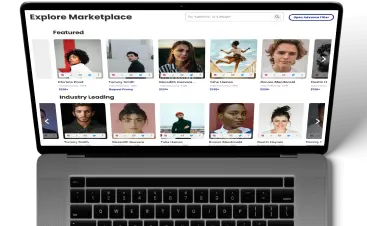As influencer marketing campaigns gain popularity, there is a need for business owners to recognize how beneficial brand ambassadors and influencers are. In this article, we will discuss everything you need to know about the difference between multiple influencer campaigns vs brand ambassador campaigns.
Influencers vs. Brand Ambassadors: What’s the Difference?
A person can be termed an influencer when they influence the opinions of a particular industry or market. On the other hand, a brand ambassador is a physical representation of a brand and speaks to media outlets on behalf of the company.
Both brand ambassadors and influencers have the power to influence people’s perspectives and decisions; however, their partnerships differ. While influencers represent a brand for a short period, a brand ambassador represents the company and coordinates the presentation and representation of the brand.
What Is an Influencer?
Influencers are individuals who wield the power to impact others’ decisions through their digital presence, often on social media. Contrary to popular belief, follower count isn’t the sole determinant of influence. Influencers come in various sizes, from nano to celebrity, each with its audience reach. Their effectiveness lies in their ability to connect with and sway their followers. Choosing the right influencer depends on your marketing objectives.
What Is a Brand Ambassador?
A brand ambassador is someone enlisted to represent a brand positively, enhancing brand recognition and driving sales. This role encompasses a wide range of individuals, including customers, employees, advocates, affiliates, and influencers, who are engaged by brands for marketing purposes. The power of word-of-mouth recommendations is central, as consumers trust peer endorsements over brand promotions. Brand ambassador programs enable organizations to leverage individuals of varying influence levels to amplify brand affinity and reach.
Exclusivity of Their Niche
When discussing influencer marketing vs. brand ambassadors, there is a difference in their exclusivity practices. For instance, a brand ambassador typically only works with one brand per industry. This means you can’t find a brand ambassador promoting a direct competitor. This will ensure he/she promotes your brand genuinely and publicly.
Influencers can work with numerous brands, even if they are direct competitors in the same niche. They can only create awareness for your brand by speaking positively about it, but you do not have an exclusive right to their genuine preference.
How Does Influencer Marketing Work?
Influencer marketing is a simple yet powerful strategy: companies collaborate with influencers who promote their products on social media platforms. These partnerships are often short-term and campaign-driven, with influencers creating a couple of content pieces. This approach is particularly effective for product launches, rapidly increasing brand visibility. As consumers increasingly trust influencers’ opinions over traditional brand messages, leveraging influencers can significantly boost brand awareness and reach a wider audience.
How Does Ambassador Marketing Work?
Ambassador marketing, or brand ambassador marketing, leverages individuals to represent and advocate for a brand. Ambassadors engage in online activities, such as social media content creation, akin to influencer campaigns, but may also participate in offline initiatives based on the brand’s objectives. Affiliate and referral programs can be categorized as brand ambassador programs, as they involve collaborating with individuals over an extended period to drive word-of-mouth recommendations. Ambassadors have flexibility in content creation, either following a set schedule or at their own pace, depending on the compensation model and guidelines. For instance, commission-based arrangements incentivize frequent content creation, while other methods may involve payment per post or free products in exchange for 1-2 monthly content pieces. Ambassador marketing extends the influencer model into a long-term partnership framework with less rigid pay-per-post structures.
Similarities Between Brand Ambassadors vs. Influencers
Another major point worth noting when trying to differentiate an influencer from a brand ambassador is the time of the contract. This refers to the time frame a brand ambassador or influencer works with a brand.
While brand influencers work for a short time unless their contract is renewed, brand ambassadors work with brands for a longer time. Depending on the contractual agreement between a brand and its ambassador, a brand ambassador can represent its brand for several years.
Because brands contract influencers as marketing strategies, their services may be disposable as soon as the contract ends. This contract is usually for a short time frame, often a few minutes or a couple of hours.
Why Should Brands Use Influencer Programs?
Brands often hire influencers to help them launch new products or services. Sometimes, these brands hire more than one influencer to help them reach as wide a target audience as possible.
Influencer marketing is very effective, which is one of the reasons why several businesses are taking advantage of this trend. To produce as much result, influencers create aesthetic and quality contents that attract viewer attention.
Why Should You Use Brand Ambassadors to Market Your Brand
Working with a brand ambassador helps you create a stronger bond with a specific target audience. Your brand ambassador will likely go the extra mile to communicate with people about the brand.
The best part is that they are more loyal and committed to your brand, especially since they don’t work with your competitors. This will encourage your target audience to trust them more even as they create genuine content.
Which one to Choose?
Both influencers and brand ambassadors deliver amazing results to the companies they work with. Understanding the role each plays is important to yield the best results for your business.










